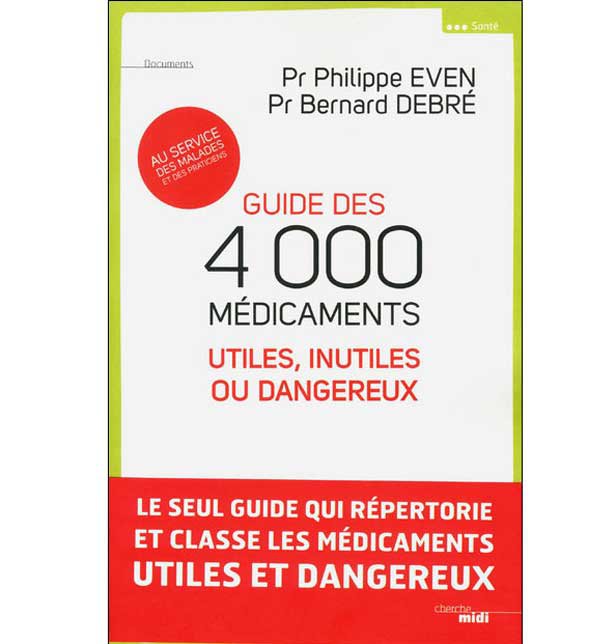In their book entitled Guide of the 4000 useful, useless or dangerous drugs to be published today, the scientists Philippe Even and Bernard Debré are formal: 50% of the drugs would be useless ! They estimate more than 20% would be poorly tolerated and 5% would be potentially very dangerous . Yet, incredible fact at a time when the Social Security deficit is abysmal, three quarters of them are reimbursed ! According to their calculations, their possible disbursement would thus allow a saving of 10 billion euros to the Health Insurance.
A waste that could easily be avoided
In the line of sight of these two doctors, the health authorities, which they consider too inactive, the pharmaceutical companies, that they suspect to privilege the economic aspect to the detriment of the health aspect while trying to sell at all costs their product and finally doctors, whose medical prescriptions are often much more extensive than necessary. In 2011, the French were indeed the first consumers of capsules worldwide, with an average of 47 boxes per person.
Useless drugs commonly prescribed
Among the medicines mentioned in the book, cholesterol medications are one of Pr Even's main pet peeves. He calls their effectiveness into question and denounces the 2 billion euros that it costs the state (according to its own estimates). At present, three to five million French people would consume regularly . Treatments to treat cardiovascular diseases, inflammations and contraceptive pills are also not spared.
Mixed reactions in the medical and pharmaceutical community
If the College of Pharmacists said yesterday that it did not want to react, the health authorities have stated their disagreement over the words of the two doctors. Thus, Professor Dominique Maraninchi, head of the National Agency for the Safety of Medicines, recalled the recent reform banning access to representatives of the laboratories of the official commissions. The professional federation of drug manufacturers has found that the book contributes to "alarming patients unnecessarily and may lead them to stop on their own treatment yet adapted to the diseases they suffer."




